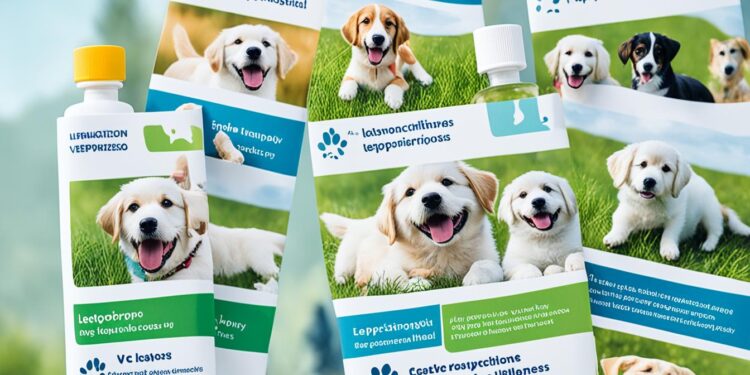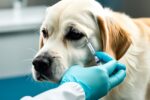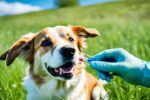The Importance of Leptospirosis Vaccines for Dogs

Did you know that leptospirosis is currently the most common zoonotic disease in the world? This serious illness is caused by Leptospira bacteria and can affect both animals and humans. However, dogs are the primary host for this bacteria, making it crucial to prioritize their health and well-being. One of the most effective ways to protect your furry friend from leptospirosis is through vaccination. Vaccines can significantly reduce the risk of clinical illness and its potential complications. Taking proactive steps to safeguard your dog’s health can save them from suffering and ensure a happier, longer life together.
Understanding Leptospirosis in Dogs and its Effects
Leptospirosis is a serious and potentially life-threatening blood infection that affects dogs. It is caused by spirochetes, spiral-shaped bacteria, and can impact any organ system in the body. One of the most significant complications of leptospirosis is kidney damage, which occurs in more than 87% of infected dogs.
The clinical signs of leptospirosis can vary in severity, ranging from mild to severe symptoms. Dogs infected with leptospirosis may experience:
- Fever
- Muscle stiffness and pain
- Bruising
- Bleeding
- Poor appetite
- Weight loss
- Jaundice
- Tissue edema
- Abdominal pain
- Cloudy eyes
- Vomiting
- Lethargy
- Changes in urination
- Dehydration
In some cases, leptospirosis can lead to a fatal condition known as leptospiral pulmonary hemorrhagic syndrome. This syndrome causes severe lung damage and can quickly become life-threatening.
When a dog is diagnosed with leptospirosis, immediate and intensive treatment is necessary. The treatment typically involves hospitalization and includes:
- Antibiotics to target and eliminate the bacteria
- Intravenous fluid therapy to maintain hydration and support kidney function
- Pain medication to alleviate discomfort
- Anti-nausea medication to control vomiting
- Gastrointestinal protectants to prevent gastric ulcers
- Liver support medication to promote liver health
Additionally, dogs with leptospirosis will require follow-up appointments to assess the progress of treatment and monitor for any long-term organ damage.
If you suspect your dog may have leptospirosis, especially after exposure to wildlife or standing water, it is crucial to seek immediate veterinary care. Prompt diagnosis and treatment can significantly improve the chances of a successful recovery.
Dog Park Safety Tips
While dog parks can be a fantastic place for your furry friend to socialize and exercise, it’s important to take precautions to prevent the spread of diseases like leptospirosis. Here are some safety tips to keep in mind:
- Make sure your dog is up-to-date on their leptospirosis vaccination.
- Avoid letting your dog drink from communal water bowls or puddles.
- Keep an eye on your dog and discourage them from consuming feces or urine from other dogs.
- After leaving the dog park, wash your dog’s paws with soap and water to remove any potential contaminants.
- Regularly check your dog for any signs of illness and seek veterinary care if needed.
By following these tips, you can help protect your dog from illnesses like leptospirosis while still enjoying the benefits of a dog park outing.
Prevention and Financial Planning for Leptospirosis in Dogs
Preventing leptospirosis in dogs is crucial for their health and well-being. The most effective way to protect your furry friend is through leptospirosis vaccination. By targeting the most common serovars of the bacteria, the vaccine significantly reduces the risk of clinical illness.
In addition to vaccination, there are other important preventive measures to keep in mind. Avoiding areas with standing water and controlling rodents and wildlife around your home can minimize the risk of exposure to the bacteria. It is also advisable to prevent your dog from swimming in lakes located in heavily wooded areas and to designate a specific elimination area for them while undergoing treatment.
A key aspect of preventing leptospirosis and ensuring your dog’s well-being is to not allow them to eat wildlife. This can help minimize the chances of coming into contact with contaminated tissue or infected animals. If you suspect that your dog has been in contact with contaminated water or notice any signs consistent with leptospirosis, it is important to contact your veterinarian immediately for proper diagnosis and treatment.
Financial planning for dog illness, such as leptospirosis, is also essential. It is recommended to consider pet insurance or having a dedicated emergency fund to cover unexpected veterinary expenses. Being prepared financially can give you peace of mind and enable you to provide the necessary care for your beloved canine companion.






